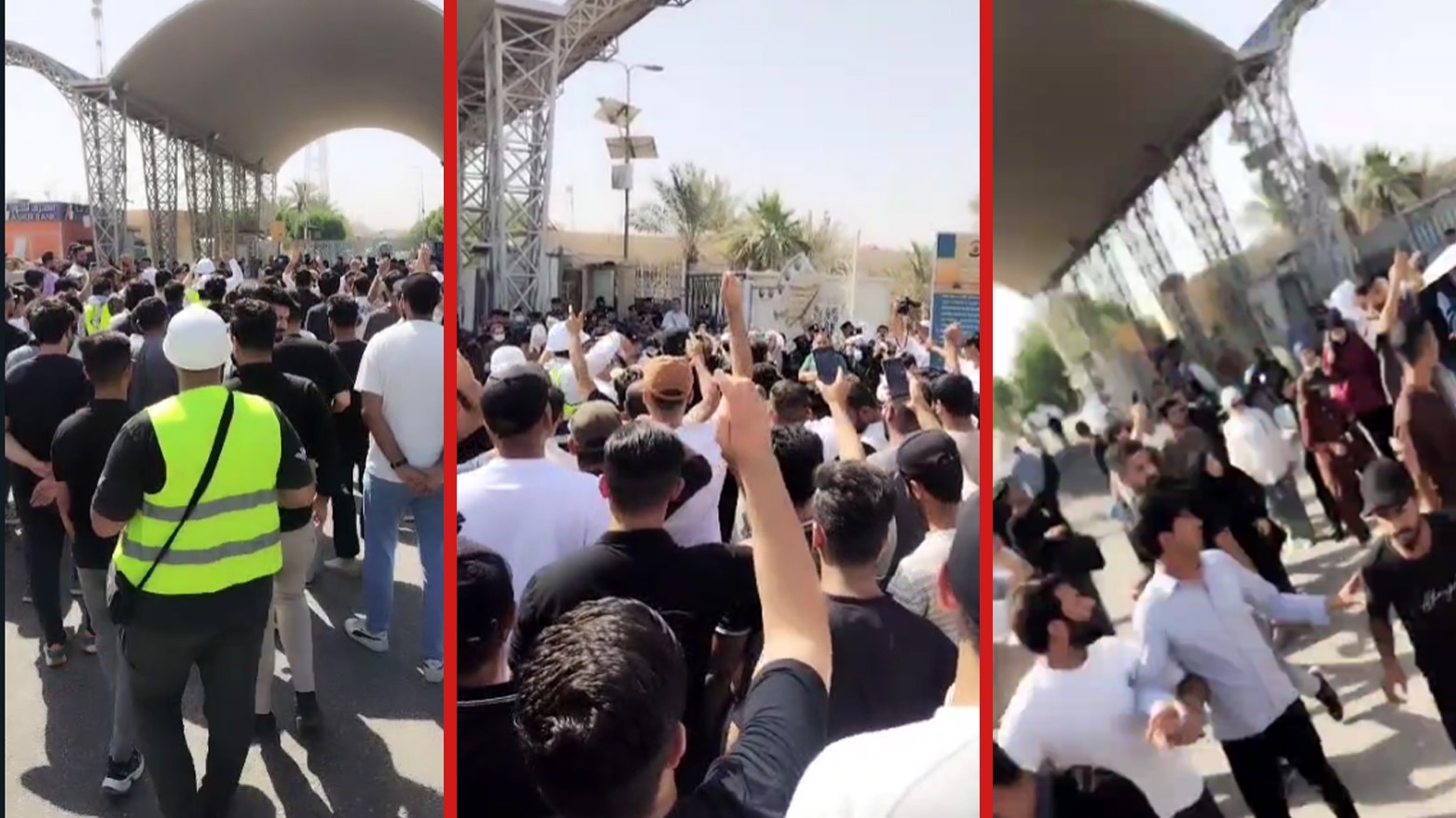Black Gold, Broken Promises: Basra's Youth Demand Justice Amid Oil Profits and Pollution
Petroleum graduates in Basra protest joblessness amid oil wealth, corruption, and pollution. Security forces crack down as locals suffer from toxic gas flaring. Calls grow for federal autonomy, with demands shifting from employment to justice and clean air.

By Kamaran Aziz
ERBIL (Kurdistan24) – A peaceful protest by hundreds of petroleum engineering graduates in Basra turned violent on Sunday after security forces forcibly dispersed demonstrators demanding employment in the province’s lucrative oil sector.
The protest, one of many over recent months, reflects growing frustration with widespread corruption, environmental catastrophe, and systemic neglect that has turned Basra’s wealth into a source of suffering for its people.
As reported by Shafaq News, demonstrators from engineering and petroleum-related fields, including geology, gathered to demand their inclusion in ministerial contracts with oil companies operating in Basra.
Hasan al-Shawi, a representative of the protesters, said, "Graduates of oil-related fields have been protesting for months without any meaningful response from the authorities." Despite repeated promises, he noted, "not a single step has been taken to fulfill our demands."
According to Shafaq News, the demonstration remained peaceful until security forces intervened, leading to physical confrontations. One protester was reportedly injured and transferred to a hospital. Protesters emphasized their commitment to non-violent advocacy and vowed to continue until their demands are met.
These demands come as Basra, Iraq's oil-rich southern province, remains plagued by deteriorating public services and rising unemployment. The province is home to Iraq’s largest oil fields, including Rumaila, West Qurna 1 and 2, Zubair, Majnoon, and Luhais, producing millions of barrels daily. Yet, as a detailed analysis by Fikra Forum, an initiative of the Washington Institute for Near East Policy, outlines, Basra’s citizens are reaping none of the benefits.
Instead, they suffer. Residents near oil sites report high incidences of cancer, respiratory diseases, and nervous system disorders.
These are believed to be linked to toxic emissions from gas flaring, particularly at Rumaila Field—one of the world’s worst offenders for associated gas flaring.
As documented by the BBC, these emissions contributed to the death of Ali Hussein Jalud, a young man who developed leukemia from exposure to flaring near his home. His family has since sought legal action against British Petroleum (BP), which operates the Rumaila site.
"The toxic smoke is part of our daily life," said Hussein Jalud, the deceased’s father, in a report by Fikra Forum. "We wake up to it every morning. It took my son, and I don’t want to lose more."
Despite vast oil revenues and the largest budget in Iraq's history approved in 2023 (198.9 trillion dinars annually for three years), corruption and mismanagement persist. According to Transparency International, Iraq remains among the most corrupt countries globally.
As Kurdistan24 previously reported, nearly 40% of Basra’s population lives in poverty, and pollution affects more than half the province. Soil degradation has reached 80%, and Shatt al-Arab's water contains severe microbial and chemical contaminants.
In interviews with Kurdistan24, residents expressed desperation. “We have nothing,” said Um Hussein, a mother living in an informal settlement. “My daughter sells bottled water so we can survive."
The growing desperation has sparked renewed calls for federal autonomy. As reported by Kurdistan24, activists and officials in Basra cite the Kurdistan Region’s relative prosperity and self-governance as a model. They argue that only through constitutional regionalization under Article 119 can Basra reclaim its rights and protect its people from exploitation and neglect.
Safaa Khalaf, an investigative journalist, told Fikra Forum that companies often evade environmental responsibilities by exploiting legal loopholes and weak oversight. Khalaf noted that Iraqi law requires a 10 km buffer between oil sites and homes, yet this is routinely violated, shrinking the distance to 5 km or less due to bureaucratic flexibility and population growth.
Health authorities have largely remained silent. No official statistics on cancer cases have been published, and those who speak to the media risk punishment. This opacity, coupled with daily exposure to toxic pollutants, fuels the mounting outrage among residents.
Protesters like al-Shawi emphasize that this movement is not only about jobs but about justice. "We are qualified professionals," he said. "We want to serve our country, but we are being ignored while the wealth beneath our feet enriches others."
As demonstrations intensify, and as more residents succumb to preventable diseases, the crisis in Basra has become a national symbol of Iraq’s mismanagement of its greatest natural resource. For many, the call is no longer just for employment, but for dignity, accountability, and the right to breathe clean air in a land overflowing with black gold.